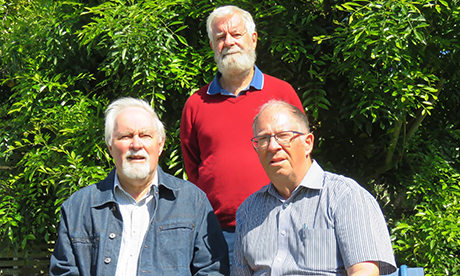A new charity – Homes for Good Trust – that began in a Kāpiti church, puts together affordable housing solutions for people who need assistance.
“The Trust uses industry tools to help people make plans that could involve co-housing, sharing costs, or renting a house to Homes for Good” its website says.
Its first project will focus on finding housing solutions for the district’s over 65-year old population..
Growing the good idea
The idea of finding affordable housing for others started when Peter Ryan, Robin Gunston and David Fromont (pictured) heard a parishioner talk about housing needs.
“We want to be agents of change by alerting people living here to the future issues of home occupancy costs, not only in financial terms, but also in terms of loneliness or the need to share with someone who could offer care as one ages” Gunston says.
Central Kāpiti has many unoccupied holiday homes that lie unused for 300 days a year, he notes.
“We want to explore with owners the various ways they can assist with this bedroom allocation issue for the benefit of both parties” Gunston says.
The Trust is also interested in the many larger properties with spare land that could accommodate a small residence, thus benefiting everyone involved.
Affordable housing needed
Homes for Good will promote discussion about changes in the way people currently live and suggest ways for homeowners to use their properties to benefit those who struggle to find affordable housing.
“Experience elsewhere in New Zealand has seen people willing to reduce rents in return for longer, more sustainable renters who are well supported” Gunston says.
“Every client of Homes for Good will be supported in the changes they make and the ongoing issues they may face.
“Another strategy is to partner with registered community housing providers who could build new affordable housing in this area, acting as the party to find the right occupiers and then supporting them in their new home.”
How Homes for Good will help
The new charity will help broker arrangements between people who have property and those who need affordable housing.
It has industry-developed tools to enable – for instance – the owner of a large house to find suitable people to share it with.
“We can take both parties through their options and help them make a plan. That could involve one co-housing with the other and sharing costs, while their house is rented to Homes for Good.”
Using existing housing stock more wisely could reduce the need for new builds, he says. There would be fewer rates increases to build infrastructure, less anxiety especially amongst older people about where their care and companionship may come from, and by making the whole community far kinder in the long-term.
But success will depend on whether people “change their attitudes” to housing issues, says Gunston.
Source
